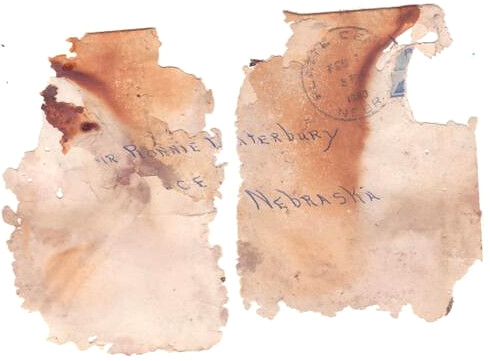When you were growing up, did you ever write your name on your LPs and 45s, either on the jacket or on the label? I never did this myself (the idea of it always struck me as distasteful, like an act of defacement or vandalism), but I knew plenty of other kids who did, and I'm sure you did too.
One such name-inscribed LP is in the collection of my friend Jeff Ash, who lives in Green Bay, Wisconsin. His copy of the Beatles' self-titled 1968 album, which he purchased at a used record store at some point in the 1980s, bears the signature of one Riffat Kamal (see above). A little over a year ago, Jeff became curious about Riffat and decided it was time to try to track him down. I'm happy to report that he succeeded.
I was surprised that Jeff's story didn't include any mention of the the little "44" beneath Riffat's name, so I asked him about that. "You know, I never asked him what it meant," Jeff replied. So he got back in touch with Riffat, who responded with the following:
That was just part of my numbering system, where I sequentially numbered all my albums from 1 to probably about 300 or so. Between my Minnesotan roommate Steve Portugese and myself, we had a few hundred albums, some of which were the same, so numbering each album was a way of keeping track of it....Looking at the picture of the White Album again, I just noticed that I don't write "4" the same way anymore. Not sure when I switched to writing "4" the way it is typed here now, but maybe that was part of my becoming Americanized.
I love this story — it gives a whole new dimension to the term "Permanent Record."
But Jeff's experience has gotten me thinking. Back in the 1980s and ’90s, I used to spend a lot of time in used record stores, and I certainly came across plenty of name-inscribed LPs along the way. But I don't think I ever purchased someone else's personalized record. In fact, I went out of my way not to purchase such items. Part of this was due to that thing I mentioned earlier about the record being defaced — I didn't want to purchase a record that had been marred, even superficially.
But there was more to it than that. At the time, I identified quite strongly (read: far too strongly) with my record collection. I wanted it to be about me, not about anyone else. Even a ballpoint-scribbled name from years ago felt like an unacceptably foreign element, a contaminant. How could I make a record fully mine if it carried the reminder of having been someone else's?
The odd thing about this, of course, is that I love artifacts that have stories to tell about their past lives — that's the essence of Permanent Record. But for whatever reason, LPs were their own special category for me, and I never saw the potential in tracking a used record back to its previous owner.
Nowadays, like so many people, I've sold off many of my LPs and consume much of my music via electronic streaming. (I'm listening to the new Beck album on Spotify as I type this, in fact.) But now that Jeff has opened my eyes, I see lots of PermaRec-ish possibilities in name-inscribed records — I may have to start dropping by used record stores again.
Do you have any records with other people's names written on them? Would you like to try to track down those people? Let's discuss.


